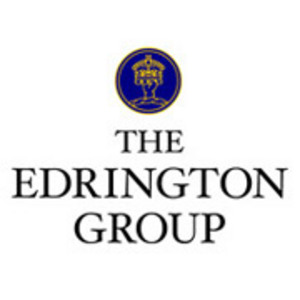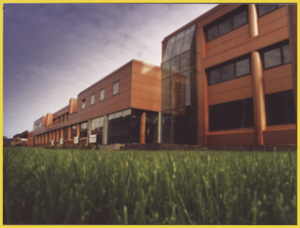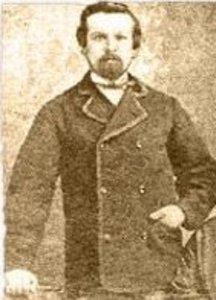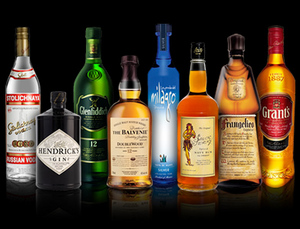|
|
Release Notes
A sherry matured 15 year old single malt distilled at Macallan and bottled for Costco's Kirkland Signature brand.
Yours Truly
The Brand: Kirkland Signature
| Established: 1995 |
| Silent since: False |
| Address: |

Kirkland Signature products are generally rated highly.Consumer Reports magazine has given high ratings for several products including batteries and laundry detergent. A number one rating was given to Kirkland Signature anodized cookware which sells for significantly less than some comparable products.
Costco introduced Kirkland Signature as its house brand in 1995. The idea was to identify categories in which a private label product could provide brand name quality at discounted prices.
To counteract the consumer confidence problem common in store branding, Kirkland Signature sometimes relies on co-branding. According to Costco, while consumers may be wary of same-store-branding, they are less likely to be wary of brands that they are familiar with and trust.
Kirkland Signature is Costco"s store brand, otherwise known in the retail industry as an "own-brand", "house brand" or "private label". It is found exclusively at the Costco website and Costco warehouses and is trademarked by the company. The name derives from the fact that Costco"s corporate headquarters was located in the city of Kirkland, Washington between 1987 and 1996.
from Wikipedia
The Distillery: Macallan
| Established: 1824 |
| Silent since: False |
| Address: Craigellachie, Banffshire AB38 9RX, UK |
| → website |
The people behind The Macallan have managed to cultivate an "exclusive" and luxurious brand perception, even though the distillery actually has the 2nd or 3d largest production capacity in Scotland, right behind Glenfiddich and Glenlivet. In the 1990"s it used to be one of my favourite brands on the shelves, but that was when they still matured all malts in sherry casks.
Only after fellow malt maniac Dave Broom had published a string of articles about the concerns about the authenticity of the 19th century bottles in Whisky Magazine, Macallan had the contents of the antique bottles carbon dated. The tests proved that the whisky contained a certain carbon isotope that only occurred in our atmosphere after the first large scale nuclear tests were done. This proved that the whiskies had actually been bottled after circa 1950...
Probably much later, actually. A tasting panel that sampled some of these whiskies guessed they were actually around ten years old, and possibly not even distilled at the Macallan distillery. One might imagine that the buyers of one or more of these replica"s would be reimbursed by Macallan for paying a lot of money for a replica of a fake, but as far as I know this was not the case.
In fact, Macallan"s focus seems to have been slowly drifting from whisky to PR and promotion since the early noughties. When Macallan distillery acquired a few antique bottles of Macallan from a dubious source around the year 2000, they didn"t waste a lot of time checking the authenticity of these bottles. They claimed "tests" of the glass and label had proven that the bottles were genuine, so Macallan proceeded to release a string of so-called "replica"s" of botlles from 1841, 1851, 1861, 1874 and 1876. Too bad the "antiques" they based those on turned out to be fakes...

Actually, the people of Macallan could and should have known better, but they didn"t check too carefully. After all, the "raison d"etre" for the release of these replica"s of bottles of Macallan from the 19th century bottles was the acquisition of these supposedly antique bottles. As soon as Macallan would admit the antiques had been fakes, they would have to discontinue their (commercially very successful) range of replica"s. So, the longer they could put off knowing for certain the bottles were fakes, the more money they would make. It"s hardly surprising that the growing chorus of doubts and warnings from the circles of Macallan fans and malt whisky anoraks around the world was politely ignored for as long as possible.
Or at least that"s what they claimed. The back label of an 18yo expression from 1982 proudly boasts: "For reasons not even science can wholly explain, whisky has always matured best in oak casks that have contained sherry. Due to increasing expense and scarcity, other distilleries no longer insist on sherry casks. THE MACALLAN DIRECTORS DO." Yep, it"s printed in massive capitals just like this on the label. Well, perhaps that"s because it"s a BIG FAT LIE.
When Macallan managed to release an extensive range of (partly) bourbon matured malts in their brand new "Fine Oak" series in 2004 it turned out that they had been maturing whisky in those crappy bourbon casks all along. Or at least since the early 1970"s, because the range included a 25yo and a 30yo Macallan. I might have been able to wash away the sense of betrayal with a few good drams, but compared to the affordable sherried marvels they released in the 1990"s these Fine Oak bottlings didn"t really tickle my fancy. Granted, the design of the new bottles was even nicer than the old one - but the whisky inside the bottle wasn"t...
One of the things that attracted me to single malts in the early 1990"s was the (relative) authenticity of the product in a world where massive corporations and mass media promote mass consumption. The entire "fakes" episode had already stretched the elastic band between Macallan"s brand image and the cold, hard reality close to it"s breaking point. When the purveyors of some of my favourite malts in the sherried side of the spectrum released their Fine Oak range that elastic band finally snapped. "Big Mac" dropped from my list of Top 10 Distilleries.

That being said - there still are very decent bottlings available. The Macallan 10yo Cask Strength (also available at some airports) still offers an affordable sherry kick. That makes it a last refuge for (sherry) Macallan fans in countries like Holland where they discontinued their sherried range altogether and only distribute the "bourbon" variety of their whisky. Fortunately, a few other Speyside distilleries like Aberlour and Glenfarclas still provide a healthy range of sherried expressions in their core single malts portfolio.
2003 - The "1876" replica is released with an ABV of 40.6%.
2004 - The Macallan "Fine Oak" series is launched, proving that Macallan had been using bourbon casks for at least three decades, although they claimed on their labels that only sherry casks were used for Macallan malt whisky. In the same year the "1851 Inspiration" replica is launched in Asia.
2008 - Macallan already used a whopping 21 stills to produce 6,000,000 litres of alcohol in the past, but in September 2008 the old still room with six extra stills is opened up again, increasing capacity to 8,000,000 litres.

EDITOR"S NOTE: You may have noticed some heavy emotions seeping through the lines of this Distillery profile - but that"s just because I used to love the brand so much. In my emotional state I may have failed to explain the entire chain of events accurately and /or completely, despite my best efforts to do so. That"s why I"m very happy that The Macallan"s David Cox took the trouble of replying to some of my criticisms in the Spring of 2009. Did he manage to convince me of Macallan"s noble intentions? Why don"t you check out my Liquid Log and find out for yourself?
In the new Millenium
2001 - Macallan distillery opens a new visitor centre and the first "replica" bottling (the "1861") is released.
2002 - The "1841" replica is launched. Like its "1861" predecessor it"s most likely based on a fake whisky...
Trivia:
- Even though Macallan is located smack in the middle of the Speyside region, it"s labeled as a Highland malt.
- When the distillery was founded in 1824 the name was "Elchies Distillery". In 1892 the new owner Roderick Kemp changed the name to Macallan-Glenlivet. The Kemp family would remain shareholders until 1996.
- During the first decade of the 3d millennium Macallan was the 3d biggest selling Scotch single malt whisky - right after Glenfiddich and Glenlivet.
- The provenance of most "antique" bottles that Macallan used to design their replica"s is dubious to say the least, but according to fellow malt maniac Charles MacLean their first replica (the 1874) could actually be based on an authentic bottle: "The first replica was the 1874, made by Frank Newlands, under the Willie Phillips/Alan Shiach regime and launched at Searcey"s, London in 1996. Frank told me they had bought the bottle at auction and extracted a sample by hypodermic. He exclaimed that he reckoned he could replicate the whisky from some of their maturing casks, and the directors got wildly excited at the possibility of demonstrating that Macallan was "the same as it had been in the 19th C". When he went back to the sample next day, its aroma had vanished, so he had to put the "replica" together by memory. I tasted both original & replica at the launch. Replica a pretty good copy, but original more delicate. The cork was drawn with due solemnity - I remember it was very short and stubby and manky. I reckon this bottle was probably genuine."
from Malt Madness
The Owner: Costco
| Established: 1983 |
| Silent since: False |
| Address: 999 Lake Drive, Issaquah, WA 98027, USA |
| → website |
In 1997, the company changed its name to Costco Wholesale.
Prior to the 1993 Price merger, Walmart founder Sam Walton wanted to merge Sam"s Club with Price Club.
The first Price Club location was opened in 1976 in an old airplane hangar, previously owned by Howard Hughes, and is still in operation today (Warehouse #401 located in San Diego).

Founded by James (Jim) Sinegal and Jeffrey Brotman, Costco opened its first warehouse in Seattle, Washington, on September 15, 1983. Sinegal had started in wholesale distribution by working for Sol Price at both FedMart and Price Club. Brotman, an attorney from an old Seattle retailing family, had also been involved in retail distribution from an early age. Sol Price died on December 14, 2009 at 93.
In 1993, Costco merged with Price Club (called Club Price in the Canadian province of Quebec). Costco"s business model and size were similar to those of Price Club, which was founded by Sol and Robert Price in 1976 in San Diego, California. Thus, the combined company, PriceCostco, was effectively double the size of each of its parents. Just after the merger, PriceCostco had 206 locations generating $16 billion in annual sales. PriceCostco was initially led by executives from both companies, but then Sol and his son Robert Price founded Price Enterprises and left in December 1994.
Costco (NASDAQ: COST), is the largest membership warehouse club chain in the United States. As of July 2009 it is the third largest retailer in the United States and the ninth largest in the world. As of October 2007, Costco is the largest retailer of fine wine in the world.
from Wikipedia
The Owner: Highland Distillers
| Established: 1887 |
| Silent since: False |
| Address: West Kinfauns, Kinfauns, Perth PH2 7XZ, United Kingdom |
Highland Distillers was founded in 1887 by the Robertson family. In 1970 Highland purchased Matthew Gloag & Son Ltd., producers of the Famous Grouse blended whisky and acquired The Macallan single malt Scotch producers in 1996. Highland also produced the Highland Park brand whisky. Highland Distillers was purchased by the Edrington Group in 1999. William Grant & Sons and the Edrington Group took Highland Distillers private in 2000.
from Wikipedia
The Owner: Edrington Group
| Established: 1961 |
| Silent since: False |
| Address: 2500 Great Western Road, Glasgow, Scotland, G15 6RW, UK |
| → website |
The Robertson Trust bears the family name of the Robertson sisters (Elspeth, Agnes and Ethel) who had inherited the Scotch whisky interests founded and developed by their grandfather and father. Keen to ensure the on-going success of the these interests, in 1961 they brought them together under The Edrington Group (named after a farm near their home in the Scottish Borders) and established The Robertson Trust. The charitable trust is funded to a considerable degree with dividend income from The Edrington Group. The Trust gave £9,900,000 million last year to a wide variety of charitable causes.
The Robertson family was also responsible for founding Highland Distillers back in 1887 and in autumn 1999, Edrington acquired Highland along with its powerful brands The Famous Grouse, The Macallan and Highland Park. These are distributed throughout the world through a series of distribution networks and partnerships.

On 3 February 2010 Edrington announced that it had finalised an agreement with Berry Bros. & Rudd (BB&R), under which it will buy the Cutty Sark blended Scotch whisky brand. Under the deal, BB&R will acquire The Glenrothes single malt brand from Edrington, which has signed long-term supply agreements to provide whisky fillings and stocks to BB&R. Edrington will retain ownership of The Glenrothes distillery. The transaction will also involve Edrington acquiring all distribution contracts on Cutty Sark in force at the time of completion. The agreement is due to be concluded by April 2010.
The origins of the Group, based in Glasgow and today one of Scotland"s largest commercial companies, stretch back to the 1850"s when W.A. Robertson began business in the city. Today, Edrington is a Scottish company controlled by The Robertson Trust.

The Famous Grouse is the best selling whisky in Scotland and has held that distinction for the last 29 years. Most recently, Edrington purchased Brugal, a golden rum from the Caribbean. The purchase complements Edrington"s leading portfolio of Scotch whisky brands, and is seen as a natural fit as the Group continues to develop its core brands through premiumisation and by targeting markets with stronger growth potential.
Edrington employs over 800 people at sites across Scotland and 220 in distribution (Nordics, Taiwan and South Korea). Brugal family members continue a 120-year tradition by playing a major role in operating their business, which employs 1,100 people at its various sites across the Dominican Republic.
The Edrington Group Limited is a major Scotch whisky company (now with interests in rum) with expertise in blending, bottling, distributing and marketing. It produces several well-known brands, including The Famous Grouse, and premium malts The Macallan and Highland Park. The portfolio also includes Brugal, the leading golden rum in the Caribbean.
Trivia:
- In the New Year Honours 2008, the Edrington Group"s chair, John James Griffin Good, was made a Knight Bachelor "for services to Scotland".
- In 2010 The Edrington Group acquired the Cutty Sark blended scotch brand from Berry Bros. & Rudd.
from Wikipedia & EdringtonGroup.com
The Owner: William Grant & Sons
| Established: 1886 |
| Silent since: False |
| Address: Phoenix Crescent Strathclyde Business Park, Bellshill, Lanarkshire, ML4 3AN, UK |
| → website |
William Grant & Sons Ltd. is an independent, family-owned Scottish company which distills Scotch whisky and other selected categories of spirits. It was founded in 1886 by William Grant, and is now run by the descendants of the founder. It is the largest of the handful of Scotch whisky distillers remaining in family ownership. "William Grant & Sons" is often abbreviated to "W. Grant & Sons" or just "Grant"s", after their leading blended whisky of the same name.
William Grant & Sons pioneered single malt Scotch whisky as until Glenfiddich, only blended brands were common In 1997 the Grant entered into a joint venture with the Robertson family (The Edrington Group) creating a new company, Highland Distillers.

The company"s leading single malt Scotch brand is Glenfiddich, the best-selling brand in the worldwide single malt Scotch market (700,000 cases/year and 17.37% market share). This is more than the sales of the next two single malts combined. Their leading blended Scotch brand is Grant"s, the 4th best-selling brand in the worldwide blended Scotch market and the Scotch market as a whole (4 million cases/year). Grant"s is also the 4th best-selling brand in the domestic United Kingdom Scotch market (420,000 cases/year and 14.6% market share).
William Grant was born in Dufftown in 1839. The young Grant worked at Mortlach Distillery and dreamed of one day running his own distillery. He worked hard and saved and in 1886 Grant and his 9 children laid the first stone of the Glenfiddich Distillery. It was Christmas day 1887 when the first spirit ran from the stills.

In 1892 William Grant & Sons bought a second neighbouring Distillery called Balvenie. In 1898 the two distilleries started blending their whiskies and Grant"s Whisky was "born".
The company is the 3rd largest producer of Scotch whisky (10.4% market share) after Diageo (34.4%), and Pernod Ricard. The company"s central headquarters are in Strathclyde Business Park, North Lanarkshire. Sales and marketing headquarters are in Richmond, London. The company is a member of the Scotch Whisky Association.

The master blender of Grant"s is David Stewart, who has been in his post for 47 years, the longest serving master blender with one distiller in the industry.
Core brands include: Glenfiddich, Grant"s, Balvenie, Hendrick"s Gun, Sailor Jerry Rum. Other brands include: Reyka Iclandic Vodka, Sailor Jerry Spiced Rum, Old Vatted Demerara Rum, Wood"s 100 Old Navy Rum, Vat 19 Rum, Gibson"s Finest, Clan MacGregor Blended Whisky, Monkey Shoulder Triple Malt Whisky, Taboo, Milagro Tequila, Solerno. The company also produces a number of rare whiskies such as Girvan First Batch (from 1964 casks) and Ladyburn (silent distillery closed in 1975) as well private vintage bottlings. Via Highland Distillers the company has a stake in the following brands: The Famous Grouse, The Macallan, Highland Park, Black Bottle and Gloag"s Dry Gin. The company has also co-developed Virgin Vodka with Richard Branson"s Virgin Group
The company owns several distilleries including Glenfiddich, Balvenie, Girvan Grain Distillery, Convalmore (only the bonded warehouse), Kininvie and Ailsa Bay Distillery.
Trivia:
- allegedly the first company to market Scotch whisky abroad (this claim is very contentious - there are several, particularly Glen Grant and Glenmorangie, which would dispute it)
- revolutionized bottle design in the 1950s, creating a triangular bottle
- was the first to open up its distillery to visitors
- introduced the solera concept to Glenfiddich to create Glenfiddich Solera Reserve
from Wikipedia
